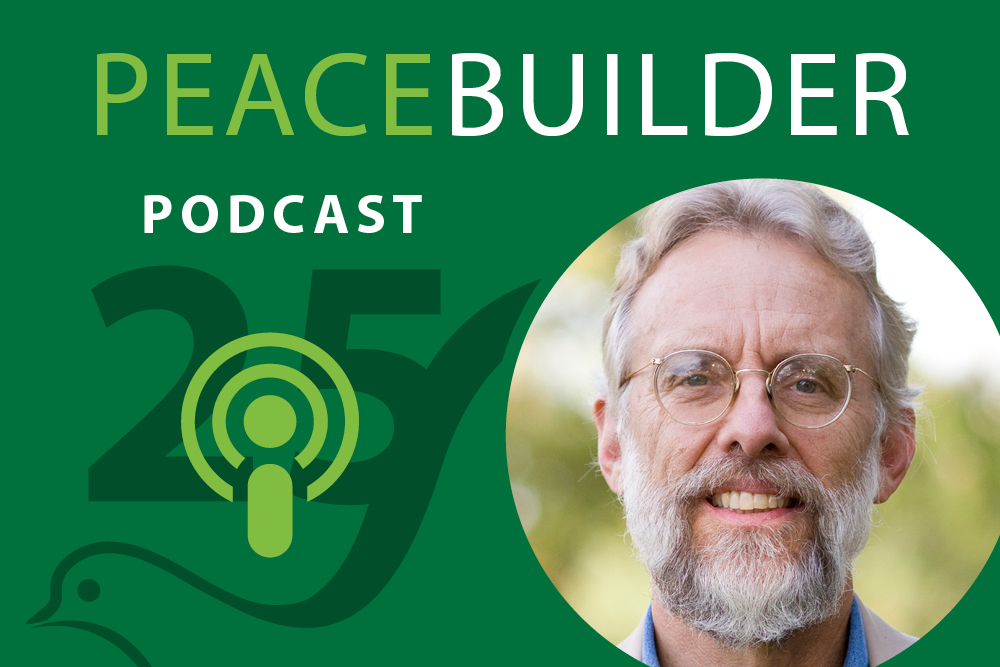The inaugural Peacebuilder podcast features Barry Hart – a professor and practitioner who has been involved with Eastern Mennonite University’s Center for Justice and Peacebuilding (CJP) since its earliest days.
The podcast is just one of the ways the center is celebrating its 25-year anniversary. Hosted by CJP executive assistant and anniversary celebration committee chair Patience Kamau MA ‘17, the 10-episode series features faculty and staff members reflecting on the history of CJP and their own peacebuilding work. A new episode drops every other week on the Peacebuilder website.
In the episode, Barry Hart, professor of trauma, identity and conflict studies at CJP, reflects on his own beginnings in the field of conflict transformation and trauma work, definitions of trauma and trauma healing, how CJP has evolved since its inception, and where he sees it – and the entire field of justice and peacebuilding – growing from here.
Hart has “officially” taught here for 23 years, but first came on board as a summer workshop instructor in 1994.
After graduating from Eastern Mennonite Seminary in 1978, Hart lived and worked overseas, developing a trauma healing and reconciliation program for the Christian Health Association of Liberia during the Liberian Civil War.
“I was very keen on trying to weave together what I understood could be brought from the outside … the people themselves were very resilient, amazing in their own right, and had skills and traditions that could help in their own healing process,” Hart recalls in the podcast.
CJP co-founder John Paul Lederach invited Hart to come present on his work during a Frontiers workshop (the Frontiers of Peacebuilding events were the precursors to today’s Summer Peacebuilding Institute).
“Coming back was really just part of what I wanted to do, and who I felt I was,” Hart says.
Hart has seen CJP through significant academic changes, like the inclusion of restorative justice and transitional justice curricula and the creation of the Foundations I and II courses.
As for the future of the Center, Hart envisions CJP addressing the climate crisis and its intersecting issues more effectively.
“If we can go forward with a real sense of care for each other, care for the planet in a way that, actually, has not only care but practical actions, then I think we’ve gone a long way. So 50 years from now, we may be known as the Center for Justice, Peacebuilding, and the Environment,” says Hart.
